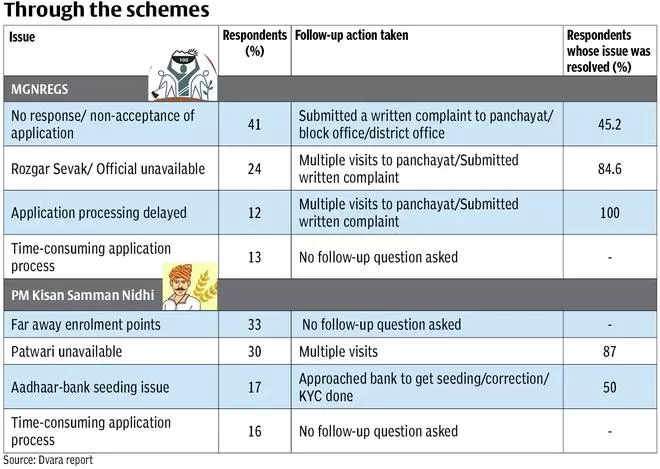A variety of exclusion factors can be found at every stage of the Direct Benefit Transfer (DBT) delivery pipeline, a survey by Research by Research has revealed.
The survey is based on feedback from about 2,500 respondents in seven states—Uttar Pradesh, Madhya Pradesh, Bihar, Tamil Nadu, Assam, Chhattisgarh and Andhra Pradesh. The agency has also made recommendations for improving the enrollment and grievance redressal mechanism.
Launched on 1st January 2013 with the objective of reforming the government delivery system, DBT now covers 313 schemes under 53 central ministries and departments. All 28 states and nine Union Territories (UTs) have adopted DBT to deliver various welfare initiatives including subsidies. The Center claims that it has been able to save more than Rs 2.22 lakh crore till March 31, 2021 with the help of DBT.

Problem
Based on the responses, the agency has listed three issues related to enrollment and receiving payments. For example, one of the most prominent issues faced by citizens attempting enrollment is lack of access/proximity to enrollment points, non-availability, or precarious availability of officers/operators responsible for enrollment, etc.
Similarly, there are delays in acceptance and processing of applications. Some of the respondents also talked about the difficulty in getting the required documents and the errors/problems found therein.
In case of receiving money in their bank accounts through DBT, one of the most prominent issues is the disruption in the payment schedule. The reasons for disruption can be spelling errors in Aadhaar details, pending KYC, frozen or inactive bank accounts, mismatch between Aadhaar and bank account details, etc.
Even after the money was credited in the accounts, the respondents talked about issues like traveling long distances to withdraw cash, erratic functioning of cash out points etc.
‘Quick Implementation’
The agency believes that there is an urgent need to increase the accessibility of enrollment points for citizens across all schemes, especially in rural and suburban areas. To this end, “we recommend the early implementation of the objectives set out in the MoU between the Ministry of Panchayati Raj and CSC e-Governance Services India Limited,” it said.
In addition, it recommends the creation of a common grievance redressal cell for all DBT schemes at all levels – state, district and block. “A cell at each level should be entrusted with the task of collecting and live-tracking all complaints generated at its sub-levels and ensuring timely redressal of complaints,” the agency said. The specific reason for the credit failure should be added. For online records of DBT beneficiaries with information on next steps to resolve this issue.
Published on
June 03, 2022